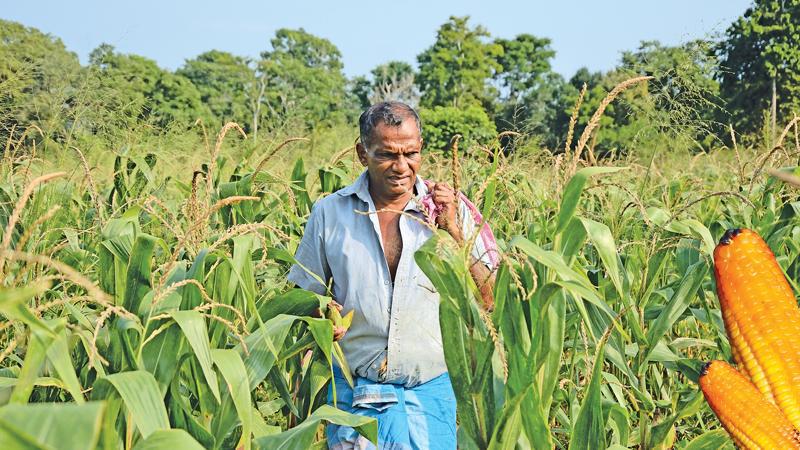
The officers of the Department of Agriculture and the Ministry of Agriculture with the support of the Provincial Departments of Agriculture are monitoring, assessing the impact and supporting the control efforts of the Fall Army Worm (FAW) which has destroyed acres of maize cultivation in the country, said Invasive Species and Crop Specialist Prof. Buddhi Marambe last week.
Maize cultivation in Sri Lanka done primarily during the Maha season which is currently on.
Maize production in 2019 was 351,000 tons up from 29,000 tons in 2000, a 16.73 percent annual growth. The government is in discussion to step up control measures and provide relief to affected farmers while Nuclear Polyhedrosis Virus (NPV) tests results are expected shortly.
However, according to reports the yield during the season will be severely affected due to the invasion of the caterpillar now spreading in to other crops across districts.
“The FAW damage is found at present in different locations. The impact is mainly on the leaves of maize plants with some damage on the young cobs. Scattered planting due to delayed rainfall is one of the reasons that has resulted in the pest damage being visible in different parts of the country during this Maha season,” Prof. Marambe said, adding that the presence of maize plants at different growth stages, has helped survival of different instars of the FAW larvae in the fields.
According to the Department of Agriculture, the biocontrol efforts made through the use of the imported biopesticide “NPV”, which is currently being tested under pilot scale, has started yielding good results.
“However, we will use this product on a large scale from next season, based on the final evaluations done. Use of recommended pesticides, with minimum environmental damage could be done on the instructions of the Department of Agriculture, in cases where the damage is severe targeting the severely infested maize plants and fields,” he said. However, according to research the Fall Army Worm has come to stay and continuous surveillance is vital to identify the pest during early stages and mitigate the impact on crops.
The yellow-spotted grasshopper is commonly found in Sri Lanka, occasionally having sporadic increases. However, there has been an increase of its population in certain parts of the country causing alarm.
The pest was first reported in Africa in 2016 causing enormous damage to maize crops. The species has potential to further spread and cause economic damage. The caterpillar has spread to 28 countries in Africa and in 2018 it entered India. The infestation of the worm on a large scale was reported in January 2019 in Sri Lanka.
